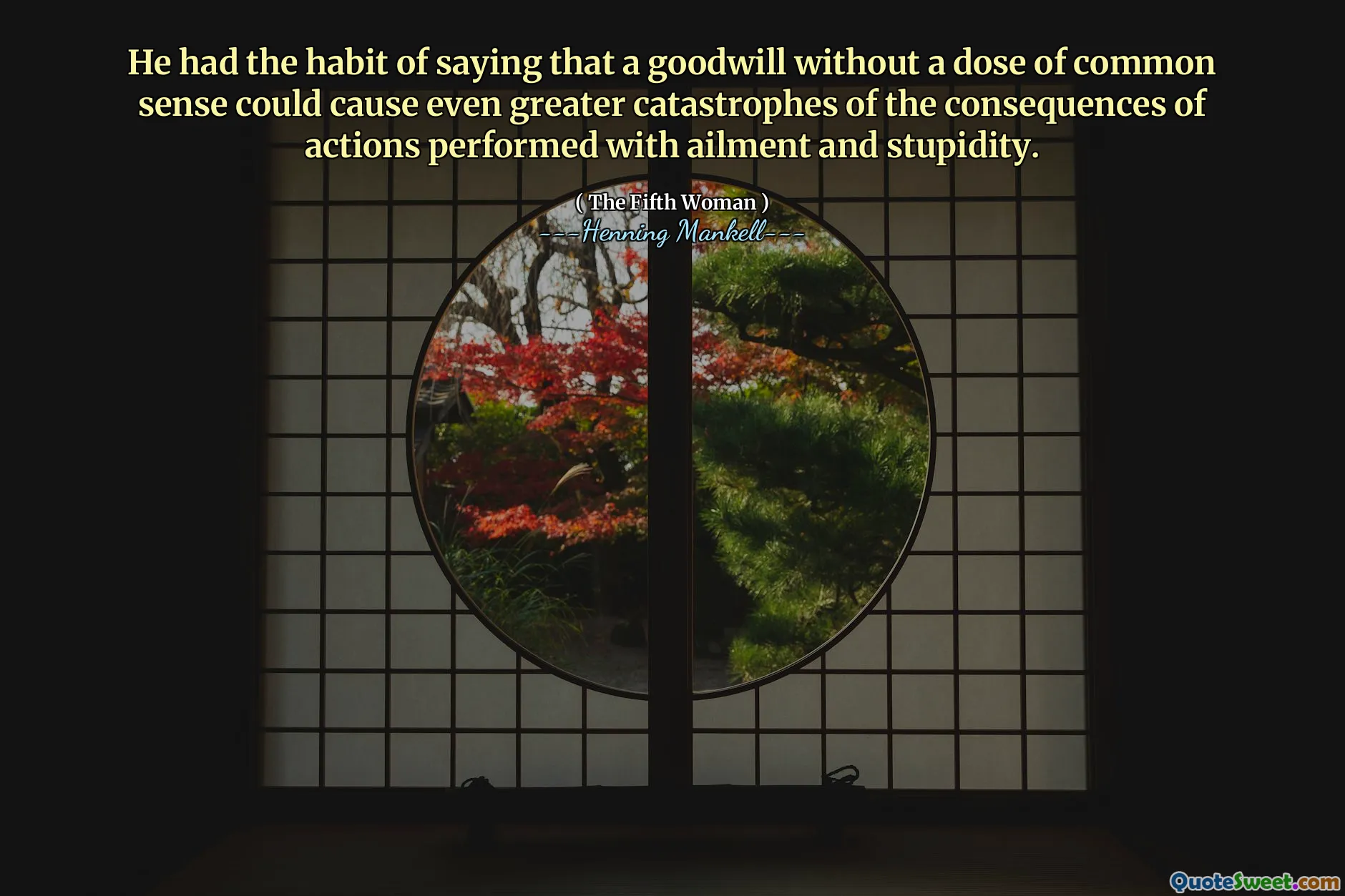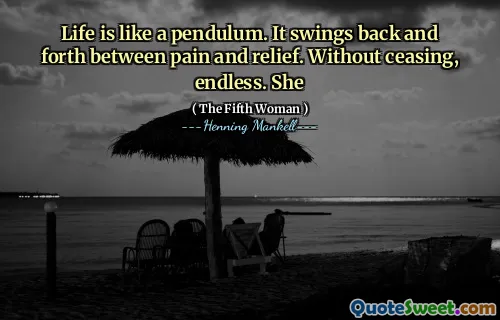
He had the habit of saying that a goodwill without a dose of common sense could cause even greater catastrophes of the consequences of actions performed with ailment and stupidity.
In Henning Mankell's "The Fifth Woman," the narrative explores the interplay between goodwill and common sense. The protagonist believes that while goodwill is essential, it must be tempered with rational thought. Without this balance, well-meaning actions can lead to disastrous outcomes, often worse than those caused by misguided intentions or foolishness. This perspective suggests that pure goodwill, devoid of practical judgment, can result in severe consequences. The quote emphasizes the need for a thoughtful approach to decision-making, highlighting that good intentions alone are not enough to prevent adverse results in complex situations.
In Henning Mankell's "The Fifth Woman," the narrative explores the interplay between goodwill and common sense. The protagonist believes that while goodwill is essential, it must be tempered with rational thought. Without this balance, well-meaning actions can lead to disastrous outcomes, often worse than those caused by misguided intentions or foolishness.
This perspective suggests that pure goodwill, devoid of practical judgment, can result in severe consequences. The quote emphasizes the need for a thoughtful approach to decision-making, highlighting that good intentions alone are not enough to prevent adverse results in complex situations.











